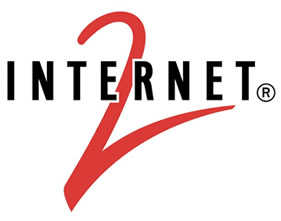Staff members of the Ohio Academic Resources Network (OARnet) are sharing their valuable expertise with participants at the Internet2 Spring Member Meeting, April 27-29, 2009, in Arlington, Va.

Pankaj Shah, executive director of OARnet, will accept the gavel as chair of the Governance and Nominations Committee. This group assesses the Internet2 governance structure and processes, oversees the annual nominations process for the Board and councils, and recommends additional adjustments to the governance structure, as needed.
Paul Schopis, OARnet’s director of networking, joins a panel of experts on April 28 to discuss “The Obama Effect: Impact of the First Digital Inauguration on Research and Education Networks.” President Obama’s inauguration highlighted the growing shift in the way individuals access information about global events, with one of the largest one-day spikes in Internet2 traffic ever recorded. This session, organized by The Quilt, will discuss the impact of this historic event on the research and education networks and explore the implications it may have on future directions of high performance networking.
Finally, Bob Dixon, who holds dual appointments as a research engineer at OARnet and chief research engineer at The Ohio State University, is involved in three program sessions at the m eeting. As part of the April 27 session on K-20 program initiatives, Dixon will present “One Laptop Per Child to Standard Video Conferencing Gateway,” about efforts to improve videoconferencing capabilities for low-cost laptop computers being provided to children in third-world countries.
He and colleagues from The Ohio State University, in the same session, will present “Skype to Standard Video Conferencing Gateway.” Many K-12 teachers and students use the voice-over-the- Internet, videoconferencing and file transfer software application because it is free; however, because Skype uses a proprietary format, it cannot connect to standard videoconferencing. The presentation highlights work underway to develop a gateway that enables Skype users to access the vast educational materials available via the Internet.
Dixon also will lead the April 28 panel discussion on telepresence, its definition, and capabilities compared to standard videoconferencing as part of “Telepresence Perspectives and Interoperability.”
Internet2 is a consortium led by universities working in partnership with industry and government to develop and deploy advanced network applications and technologies. Its semi-annual meetings focus on a particular issue members are facing. The spring meeting tackles the growing need for economic and environmental sustainability and adaptability, and the role that higher education IT, specifically the advanced R&E network community, will play in addressing these issues.
Additional information on Internet2 can be found at: http://www.internet2.edu/.
____________________
The Ohio Academic Resources Network (OARnet) was established by the Ohio Board of Regents in 1987 to provide researchers with access to the computational resources of the Ohio Supercomputer Center. Today. OARnet provides Ohio’s colleges and universities and their research partners with an integrated technology infrastructure that includes unrivaled intrastate network connectivity and shared services. OARnet specializes in providing custom solutions, whether providing virtualization resources, spanning the globe by videoconference or providing 24/7 network support. For more information, visit www.oar.net.
Internet2 is the foremost U.S. advanced networking consortium. Led by the research and education community since 1996, Internet2 promotes the missions of its members by providing both leading-edge network capabilities and unique partnership opportunities that together facilitate the development, deployment and use of revolutionary Internet technologies. Internet2 brings the U.S. research and academic community together with technology leaders from industry, government and the international community to undertake collaborative efforts that have a fundamental impact on tomorrow's Internet. For more information: http://www.internet2.edu